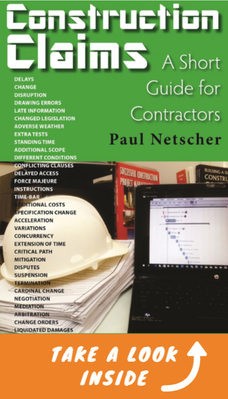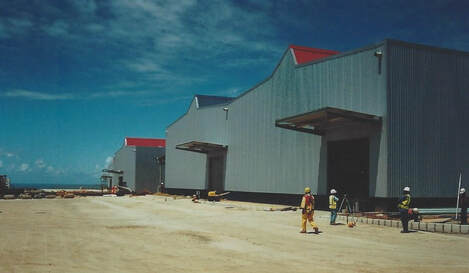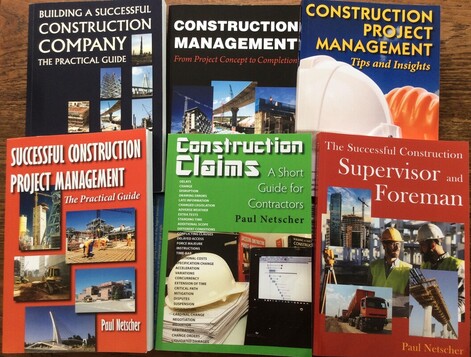|
From time to time construction projects are delayed by events outside the control of the contractor and due to no fault of the contractor. Also, on some projects there are scope increases which may require extra time to complete. Contractors need to submit a delay claim (change order) requesting an extension to the milestone completion dates. This extension is necessary to avoid penalties or damages being imposed by the client. In addition the contractor can usually request to be reimbursed for the costs associated with the additional time. Most contractors believe that using the approved Construction Schedule (Programme), with linked tasks and a Critical Path, they can simply input the delays and automatically get a new end date. Essentially this is true, but it doesn’t take into account some factors which could impact the new revised Construction Schedule. What to consider when your construction project is delayed1. The revised Construction Schedule may push certain activities into unsuitable weather seasons. For example 1: the contractor may have planned to complete the excavations and earthworks in the dry season, but because of delays these activities are now pushed into the wet season. In some areas it can be impossible to carry out earthworks in the wet season, but at the very least the rains will cause additional delays which weren’t allowed in the original Construction Schedule. Example 2: the original Schedule was prepared on the premise that the building being constructed would be weather tight by the time severe cold or rains arrived. Delays to construction could result in the building not being weather-tight before the onset of poor weather resulting in weather related delays which weren’t allowed in the Construction Schedule. 2. The revised Construction Schedule can cause underutilisation of construction resources and equipment, such as large cranes which may have to be re-established again on the project, or could be under-utilised for a period. 3. The revised Schedule may have resource peaks and troughs. This might result in resources (men and equipment) having to be removed and re-established on the construction project resulting in additional costs. In fact will you be able to find the additional resources for these peak demands? 4. Pushing out the end date of the project may mean that specialist subcontractors and equipment might not be available as they are already committed to other projects. Case study: On one earthworks project that was both delayed and increased in Scope, most of the equipment had been ordered for the original project duration and was committed by the supplier to another project at the end of this time. At the end of the original contract period the supplier removed all their equipment, even though we weren’t finished using it, and we had to source new equipment which caused us delays and additional costs. 5. Construction materials that have already been ordered may have to be delivered to the project site in accordance with the original Construction Schedule, even though they are no longer needed at that time. This could result in the site becoming congested. Also, the materials probably now have to be double handled, possibly necessitating additional transport and cranes to move them. The alternative is to store the materials and equipment off-site at an additional cost which would include security and unloading and reloading them. There’s also the additional risk of damage to these items with the extra handling and storage. In addition the contractor usually has to pay for these items because they’re considered delivered by the supplier, but the employer may not pay the contractor for them until they are installed, which will be in accordance with the delayed Construction Schedule – with sometimes dramatic consequences for the contractor’s cash flow. 6. Moving the Construction Schedule out could also move the Schedule to coincide with statutory public holidays. These holidays cause further delays. In some countries projects shut-down for an extended period over Christmas. Again this period further delays the project. But in addition if the original plan was to have finished the work before this holiday shut-down the contractor will now face additional costs of having to secure the project site and maintain their site facilities over this period. 7. In some cases the contractor may have planned their Schedule so that major concrete pours occurred before the holiday period. The concrete was planned to cure and gain strength over the break so no time was allowed in the Schedule for this activity. A delay may thwart this plan meaning that the concrete is only poured after the break and the curing time has to be added to the Schedule. A delay of a couple of days could impact the schedule by several weeks. Other Useful reading: Negative cash flow – the death for many construction companies Will your next construction variation claim be successful? Construction project variations – have you included all your costs? ConclusionFormulating a construction delay claim, extension of time claim (change order) is not always straight forward and there is much to consider. What are the knock on impacts of the delay, both in cost and time? Having a detailed Construction Schedule (Programme) showing all the links, the critical path, and a Schedule that is fully resourced is an essential starting point. Of course it's also helpful if you included with your Schedule submission to the client certain key assumptions you made when formulating the Construction Schedule. This could include work that had to be completed before the start of the wet season, or concrete that needed to be poured before the holiday period. Prepare your delay claims carefully to ensure you have not overlooked anything. Then make sure you detail in your claim all the impacts and costs. You normally have one shot to get it right.  This article is an extract from the book Construction Claims: A Short Guide for Contractors. This easy to read book demystifies the claims (change order) processes ensuring entitlements are claimed. Learn when you can claim, how to make claims compelling, and the supporting documentation required to win. Your eyes will be opened to numerous events, costs and impacts. Knowing some of these tips could dramatically improve profits and avoid time consuming acrimonious disputes. Also included is advice for contractors to avoid and defend claims from employers and subcontractors. © 2021 This article is not to be reproduced for commercial purposes without written permission from the author. Do you want to learn how to manage construction projects successfullyPaul Netscher has written several easy to read books for owners, contractors, construction managers, construction supervisors and foremen. They cover all aspects of construction management and are filled with tips and insights.
Visit to read more. The books are available in paper and ebook from most online stores including Amazon. construction management construction project management
7 Comments
19/10/2021 02:59:10 am
I like that you mention that weather conditions can cause problems for construction projects. Since this is the case, you'd probably want to make sure you talk to your earthworks team about any potential problems during the schedule of your work. This should help my cousin who wants to build a shed in a few weeks.
Reply
8/11/2021 02:06:53 pm
Great Information sharing .. I am very happy to read this article
Reply
8/11/2021 02:08:08 pm
I should thank you for the undertakings you have made in making this article.
Reply
The provided information discusses the importance of construction delay claims in managing construction projects effectively. When unforeseen events or scope increases cause project delays, contractors need to request extensions to completion dates. However, preparing a delay claim requires considering various factors beyond adjusting the project timeline. Delays can lead to weather-related issues, resource underutilization, equipment re-establishment, and the availability of specialized subcontractors. Handling construction materials can become more complex and costly when schedules change, and public holidays and seasonal shutdowns can impact timelines and costs. Therefore, meticulous planning and comprehensive documentation are crucial for a successful delay claim. Contractors should start with a detailed construction schedule and include key assumptions made during its formulation. The book "Construction Claims: A Short Guide for Contractors" offers valuable insights for contractors managing construction delays and claims effectively.
Reply
14/10/2023 05:41:55 am
It was most captivating when you shared that an extension to the milestone completion dates is necessary to avoid penalties or damages. My friend wants to ensure their earthworks are done on time. I think it's best to work with a contractor with the right equipment for the job.
Reply
Leave a Reply. |
Archives
June 2024
Note: We welcome genuine comments, especially comments that add additional information to the subject matter in the article. We however reserve the right to remove inappropriate comments, which includes comments that have nothing to do with the subject, comments that include inappropriate language, and comments that are an advertisement for a product or company, or which include an advertising link. Comments must be in English. We will not enter into discussion on why a particular comment was removed.
CategoriesCopyright 2016 - The attached articles cannot be reproduced for commercial purposes without the consent of the author.
The opinions expressed in the attached articles are those of the writer. It should be noted that projects are varied and different laws and restrictions apply which depend on the location of the contractor and the project. It's important that the reader uses the supplied information taking cognisance of their particular circumstances. The writer assumes no responsibility or liability for any loss of any kind arising from the reader using the information or advice contained herein. "I have what I consider some of the best books on construction management."
Books are available from: Amazon.com Amazon.co.uk takealot.com kalahari.com Amazon.in Amazon.de Amazon.fr Amazon.it Amazon.com.au Powell's Fishpond uread bokus Amazon.ca Amazon.es Other retail stores Available in paperback or on Kindle "28 YEARS OF CONSTRUCTION PROJECT MANAGEMENT EXPERIENCE, DEVELOPING SUCCESSFUL CONSTRUCTION PROJECT MANAGERS AND BUILDING SUCCESSFUL CONSTRUCTION COMPANIES"
|






 RSS Feed
RSS Feed




